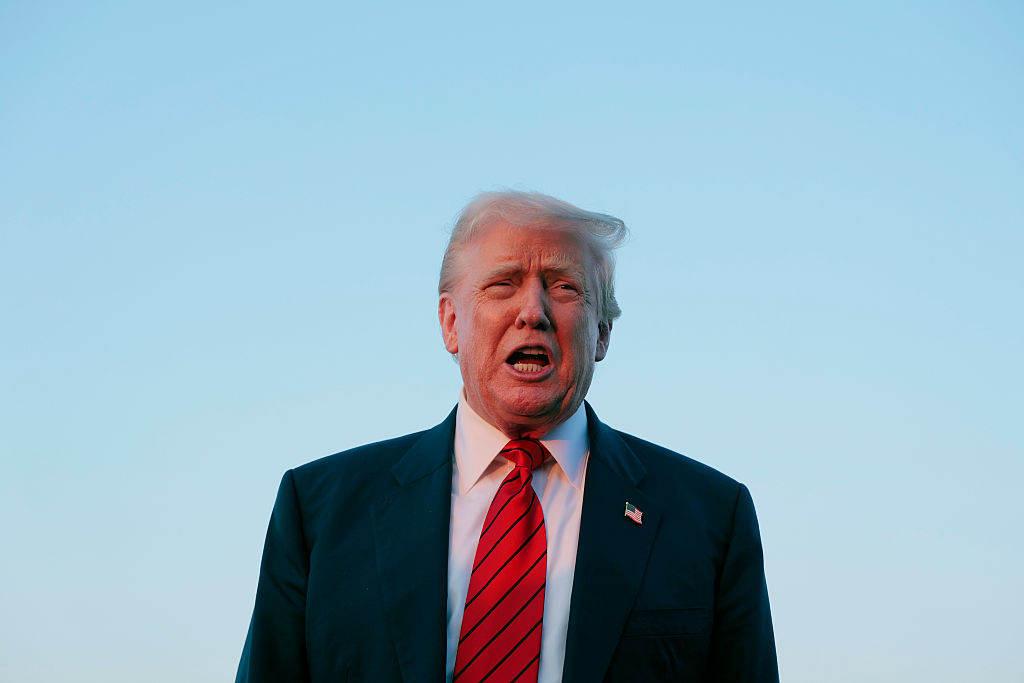Donald Trump has historically shown little interest in ASEAN, the Association of Southeast Asian Nations. However, as his Administration’s top officials have sought to combat China’s influence in the region, Trump is planning to personally attend ASEAN’s annual summit in Kuala Lumpur on Sunday for the first time since 2017. His real goal, however, seems less to do with the finer art of multilateral diplomacy, which the U.S. President has shown little taste for, and more about being present for another peace deal to claim credit for. In fact, what’s being called the “Kuala Lumpur accord” may be the only reason Trump is going to the ASEAN summit at all, Politico reported earlier this month.
[time-brightcove not-tgx=”true”]
Trump has already included the conflict that flared up in May between Thailand and Cambodia, two neighboring ASEAN member states, for which the U.S. helped to broker a cease-fire by leveraging trade relations in July, among the wars he’s “ended” around the world—a list that also includes the conflicts between Israel and Hamas, Israel and Iran, Pakistan and India, Rwanda and the Democratic Republic of the Congo, Armenia and Azerbaijan, and from his first term Egypt and Ethiopia as well as Serbia and Kosovo.
While some of those conflicts have seen peace agreements—albeit many have ongoing, unresolved tensions and even outbreaks of violence, including between Cambodia and Thailand—Trump has cited the collection that includes both some genuine achievements as well as some overstatements to burnish his credentials as a “President of peace.” He campaigned heavily for the Nobel Peace Prize, which earlier this month was awarded instead to Venezuelan opposition leader María Corina Machado, and a number of world leaders, including Cambodia’s, have indulged him with nominations for next year as part of an apparent strategy of “flattery diplomacy.”
But whether the peace deal between Cambodia and Thailand becomes a genuine achievement or an overstatement, experts say, is still up in the air. And questions remain about Trump’s commitment to the pact after he gets his photo-op.
“It requires sustained political pressure,” Mark S. Cogan, associate professor of peace and conflict studies at Kansai Gaidai University in Osaka, Japan, tells TIME. “Will the United States take its eye off the ball? Will it continue to take interest in what’s going on in Thailand and Cambodia once Trump oversees this accord? Or will he get distracted by something else?”
“Do you think that the United States cares deeply about an unresolved, relatively minor—and I say that with lots of air quotes—dispute between Thailand and Cambodia? Is it on the scale of other conflicts? No, of course not. Is it deep-seated and hot? Yes, of course. But to what degree does it really impact the United States? Not very much,” adds Cogan. “What does Trump get out of it?”
The success of the accord, Cogan says, hinges on “third-party” monitoring that ensures both sides will observe it. And there will undoubtedly be “stress tests,” as he puts it, with parties trading accusations of cease-fire violations. Enforcing compliance, Cogan adds, is something that Washington theoretically has the ability and credibility to provide. But he’s not alone in being skeptical.
Thai scholar Pavin Chachavalpongpun, a professor at the Center for Southeast Asian Studies at Kyoto University in Japan, tells TIME that Trump’s involvement in peacemaking in the region appears to be a transactional one: “The sustained external pressure necessary for enforcement will probably disappear once the signing ceremony is over.”
The accord itself is also up in the air still. Malaysia’s Prime Minister Anwar Ibrahim, this year’s rotating ASEAN chair, said Thursday that details of the agreement are still being “ironed out.”
While Cambodia has shown enthusiasm to give Trump a win, with a spokesperson for the ruling party saying on Oct. 15, “we are ready at any time” to sign a deal, Thailand’s government, which recently came into power after the previous was ousted over handling of the conflict, has been more wary of being steamrolled in the process—“welcoming the stability but wary of Trump potentially favoring the Cambodian side,” says Pavin.
Relatively new Thai Prime Minister, Anutin Charnvirakul, said Sunday that his government “will not let our country be taken advantage of by neighbouring countries or any other nation. We have the duty to protect the national interest to the best of our ability.”
Trump may provide, says Pavin, “the necessary leverage to push the deal across the finish line.” But Pavin believes the agreement will “likely succeed as a short-to-medium-term stabilisation measure” but remain “inherently fragile as a source of lasting peace.”
Even Cambodia, which wants a deal, has made clear the limitations of what it will agree to. Cambodian Prime Minister Hun Manet wrote on Oct. 19 that the pact is “about setting conditions and codes of conduct to create a favorable environment to end the conflict and restore relations between the two countries.” But Hun Manet clarified that neither the initial July cease-fire nor the upcoming deal means “that either party agrees to give up its legal right to control territory under its sovereignty.”
“The deal’s longevity is doubtful,” Pavin says, “because it fails to resolve the underlying border dispute over territory and historical maps; it merely postpones that conflict.”

